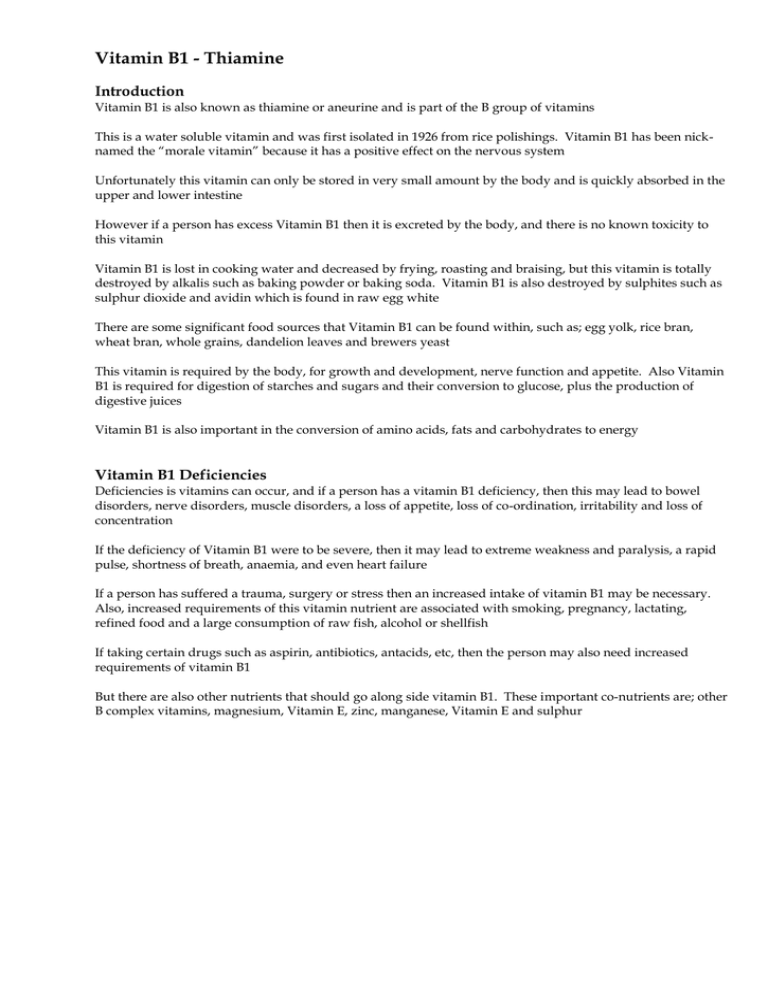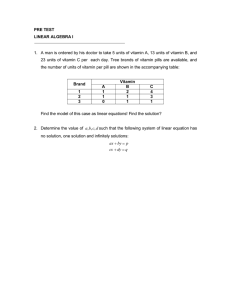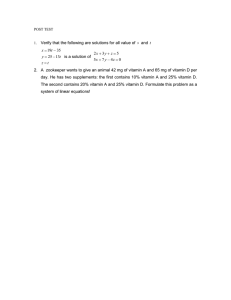Vitamin B1 - Thiamine Introduction
advertisement

Vitamin B1 - Thiamine Introduction Vitamin B1 is also known as thiamine or aneurine and is part of the B group of vitamins This is a water soluble vitamin and was first isolated in 1926 from rice polishings. Vitamin B1 has been nicknamed the “morale vitamin” because it has a positive effect on the nervous system Unfortunately this vitamin can only be stored in very small amount by the body and is quickly absorbed in the upper and lower intestine However if a person has excess Vitamin B1 then it is excreted by the body, and there is no known toxicity to this vitamin Vitamin B1 is lost in cooking water and decreased by frying, roasting and braising, but this vitamin is totally destroyed by alkalis such as baking powder or baking soda. Vitamin B1 is also destroyed by sulphites such as sulphur dioxide and avidin which is found in raw egg white There are some significant food sources that Vitamin B1 can be found within, such as; egg yolk, rice bran, wheat bran, whole grains, dandelion leaves and brewers yeast This vitamin is required by the body, for growth and development, nerve function and appetite. Also Vitamin B1 is required for digestion of starches and sugars and their conversion to glucose, plus the production of digestive juices Vitamin B1 is also important in the conversion of amino acids, fats and carbohydrates to energy Vitamin B1 Deficiencies Deficiencies is vitamins can occur, and if a person has a vitamin B1 deficiency, then this may lead to bowel disorders, nerve disorders, muscle disorders, a loss of appetite, loss of co-ordination, irritability and loss of concentration If the deficiency of Vitamin B1 were to be severe, then it may lead to extreme weakness and paralysis, a rapid pulse, shortness of breath, anaemia, and even heart failure If a person has suffered a trauma, surgery or stress then an increased intake of vitamin B1 may be necessary. Also, increased requirements of this vitamin nutrient are associated with smoking, pregnancy, lactating, refined food and a large consumption of raw fish, alcohol or shellfish If taking certain drugs such as aspirin, antibiotics, antacids, etc, then the person may also need increased requirements of vitamin B1 But there are also other nutrients that should go along side vitamin B1. These important co-nutrients are; other B complex vitamins, magnesium, Vitamin E, zinc, manganese, Vitamin E and sulphur



